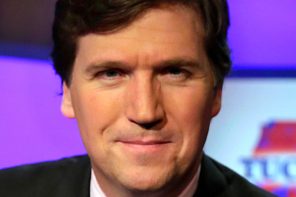Mike Huckabee and Glenn Beck have been going at each other over the past week, with Beck concluding on the air that Huckabee shouldn’t run for president in 2012 because he’s too “thin-skinned.”
The thrust of Beck’s attacks on Huckabee have been that he’s too “progressive,” and calling him a “big government guy” for his supportive statements about Michelle Obama’s anti-obesity intiative.
Beck’s assault on Huckabee is — like most things Beck does — completely derivative. In 2008, when Huckabee was running in the Republican presidential primary, there was a concerted conservative attack on him, both in public and behind the scenes, based on his allegedly too liberal tenure as Arkansas governor. And just like in 2008, when faced with attacks from fellow conservatives, Huckabee is unafraid to fight back.
When the current war of words first started, some observers wondered whether Huckabee could survive a takedown by Beck. But if you look back at 2008 — and granted, of course, Huckabee didn’t win the nomination then — Huckabee has a history of not mincing words with his conservative critics.
In late 2007, when Huckabee was ascendant after winning the Iowa straw poll, but before he won the Iowa caucuses, I talked to Republican activists from Arkansas, who all expressed exasperation at Huckabee’s “liberalism” because as governor he supported, among other things, removing obstacles to children of undocumented immigrants from obtaining state services. These Republican activists took credit for a behind-the-scenes campaign to get big name would-be endorsers from throwing their support to Huckabee. (Big name endorsers that would have included, if he had been as prominent at the time, Glenn Beck.)
Just like with his current pushback on Beck, the 2008 Huckabee was undeterred: he accused Republicans of being too “busy going to upscale, nice parties with folks who haven’t been impacted by a downturn in the economy” and called the party a “wholly owned subsidiary of Wall Street;” he maintained that the Values Voters Summit organizers who wouldn’t endorse him were “more intoxicated with power than principle;” he called the Club for Growth, which called him a “habitual tax-hiker” the “Club for Greed;” and reportedly said that religious conservatives in his home state “drank a different kind of Jesus juice” than he did.
There’s no doubt that Huckabee would face the same intra-conservative challenges if he runs again in 2012. He’d still face the “Republican In Name Only” from his original accusers, who now have Beck reading out of their playbook. His followers even have a bit of a complex about conservative attacks on their man; at the Values Voters Summit last year, several of his PAC volunteers told me they thought that Fox (which also gives Huckabee a free platform via his own television program) had an institutional bias against him. In a way, a public battle between Beck and Huckabee could serve to motivate Huckabee’s supporters, who are now more aware of the impact of the conservative anti-Huckabee campaign.




